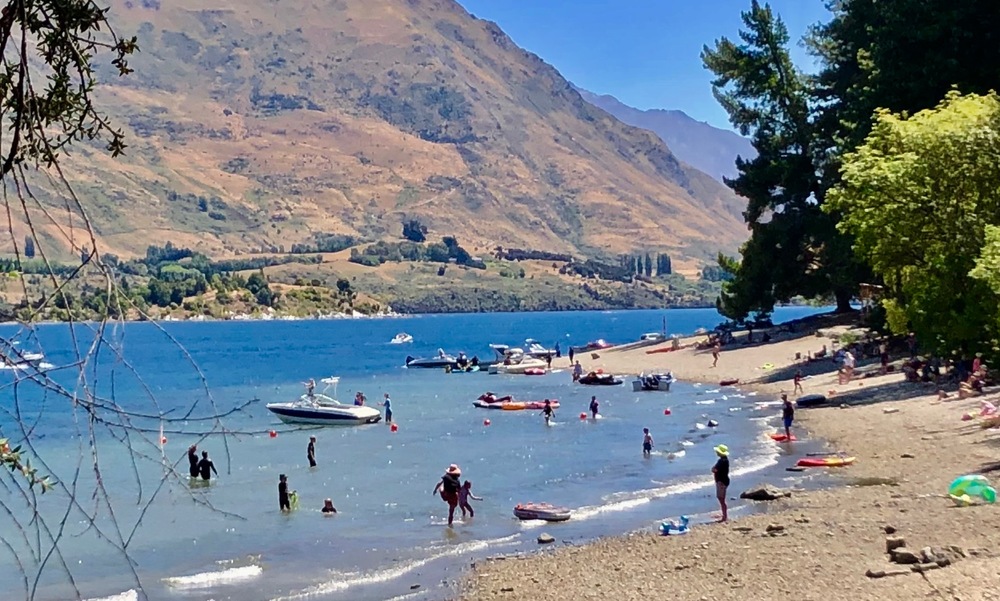Wānaka records driest January since 1927
Diana Cocks
02 February 2022, 5:06 PM
 Green to Gold agricultural contractors chop grass silage for winter feed at Matukituki Station at the start of a golden summer. PHOTO: Andrew Dawson
Green to Gold agricultural contractors chop grass silage for winter feed at Matukituki Station at the start of a golden summer. PHOTO: Andrew DawsonLast year was officially recognised as New Zealand’s warmest on record so it’s perhaps not surprising to learn the recent weeks of hot dry January weather have resulted in a new record for central Wānaka.
With only three millimetres of rain recorded, that’s only six percent of usual January rainfalls, January 2022 has set a new Wānaka record as the driest since records began in 1927, according to the National Institute of Water and Atmospheric Research (NIWA).
Slightly more rain (14mm) was recorded at Wānaka Airport during January but that’s still only 25 percent of normal levels.
NIWA meteorologist Nava Fedaeff told the Wānaka App January was also hotter than usual for the district with an overall average temperature three degrees higher than the norm, making it the fourth hottest January on record since 1955.
She said New Zealand is being influenced by La Niña which means warm subtropical winds from the north east resulting in drier, hotter conditions to inland Otago and the Upper Clutha.

Hundreds flock to Eely Point reserve to cool off during a hot January day. PHOTO: Wānaka App
“We’ve been experiencing a distinct La Niña flavour to our weather with a lot more high pressure systems than usual throughout January,” Nava said.
She said the summer forecast for February and March suggests more hot weather but also closer to normal levels of rainfall.
“We are expecting more high pressure systems to return in the second half of February but the influence of La Niña is going to wane in March,” she said.
The Metservice is predicting this current wet spell to ease but continue with some rain through to the end of the week.
The good news is that despite a record setting hot, dry January the district’s hydro lakes, Lakes Wānaka and Hāwea, will benefit from the current February weather.
A wet spring last year ensured the hydro lakes were in good shape going into the summer, Nava said, and while lake storage had declined markedly throughout January, February’s deluge on the West Coast is effectively topping up the hydro lakes once more.
February’s rain will also improve soil moisture levels which had dropped to well below normal during January and were listed as dry to very dry throughout the district, Nava said.
With the risk of fire considered extreme early in January, Fire and Emergency NZ (FENZ) placed a prohibition on all outdoor fires in the Upper Clutha from January 15. The prohibition remains in place although the recent rain has reduced the fire risk slightly from ‘extreme’ to ‘high’.
"A damper start to the summer [in December] has seen significant vegetation growth which is now rapidly drying out,” FENZ Otago District manager Phil Marsh said.
The current rain will have made a difference to soil moisture and bone dry vegetation, but the forecasted hot settled weather returning during February means extreme fire risks will return with it.
"Locals will need to consider the risks and current conditions before undertaking spark or heat-generating activities like mowing,” Phil said.




